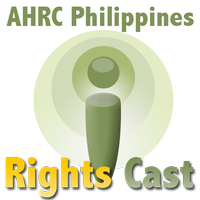 (Hong Kong, January 27, 2012) In this episode of cast, the AHRC comments on the inequality before the law and the lack of protection to poor villagers charged for offenses as a result of poverty.
(Hong Kong, January 27, 2012) In this episode of cast, the AHRC comments on the inequality before the law and the lack of protection to poor villagers charged for offenses as a result of poverty.
In this report (time code: 20:47-21:53), a villager named Giovani Maceda of Mayorga, Leyte is being detained after he was arrested for allegedly stealing coconut fruits. The value of coconut fruits that he and three of his co-accused were alleged to have stolen is USD25; however, a local court which issued the arrest warrant imposed Php40,000 (USD933) bail for their temporary release.
Here, what Maceda had experience is no different to many other detainees who are congesting the country’s prisons. There are many prisoners who have to endure lengthy trials and detention because they could not simply afford to pay the bail.
The purpose of imposing bail is supposedly to ensure that the person subject of the criminal trial appears for trial. Also, the more serious the offense and the capacity of the person accused to evade the law, like travelling outside the country, the more excessive the bail that would imposed should have been.
However, none of this principle applies on Maceda’s case. In fact, the offense he and his co-accused were alleged to committed were due to poverty; nevertheless, the court had completely disregarded fundamental principles of equality before the law and equal protection of the law by imposing excessive bail.
Also, apart from imposing excessive bail and bail disproportionate to the nature of the criminal offense, in most cases the rich and influential abuse legal process against the village poor. The filing of these types of cases in court is common in the places where there is conflict in land ownership.